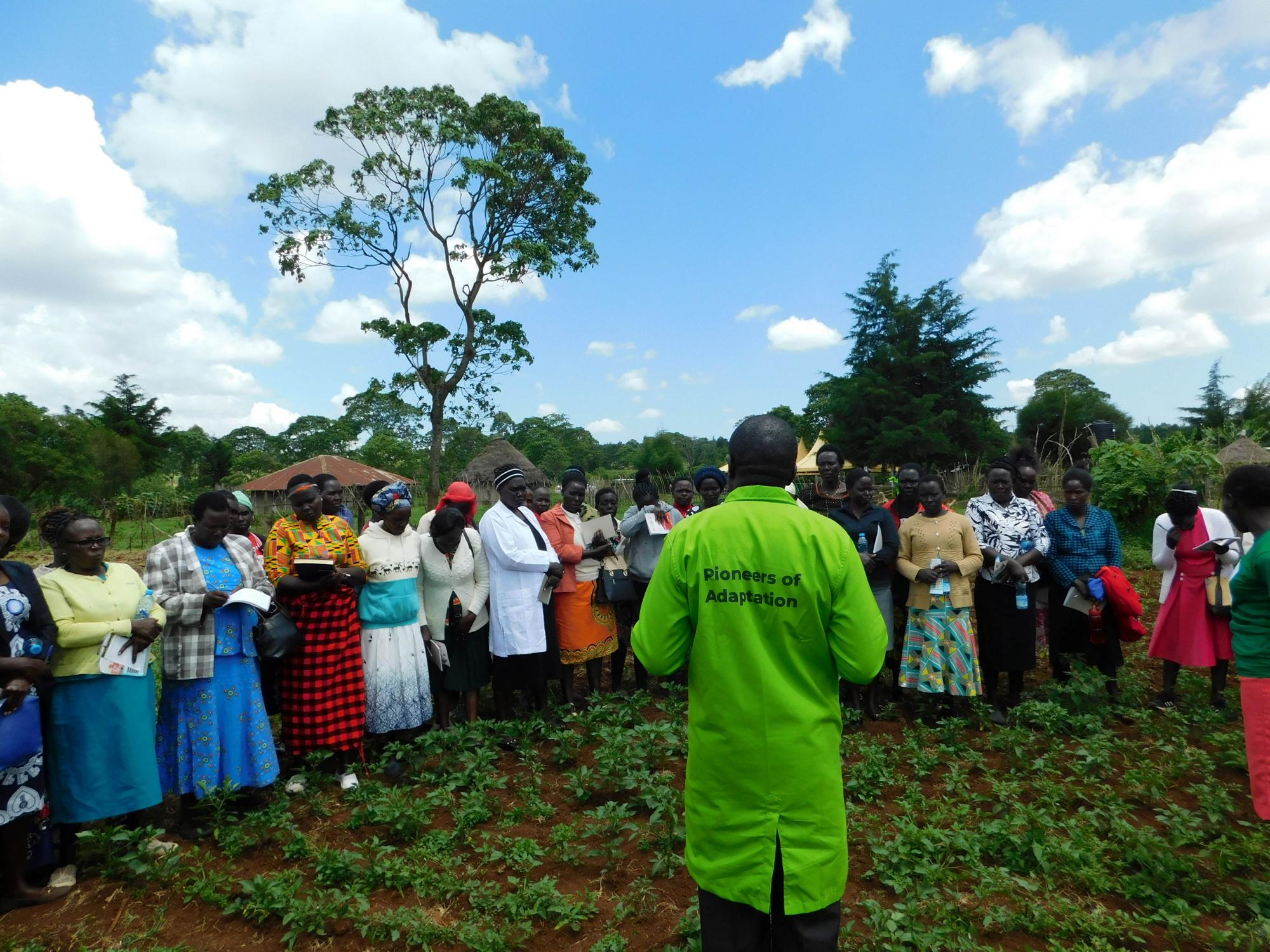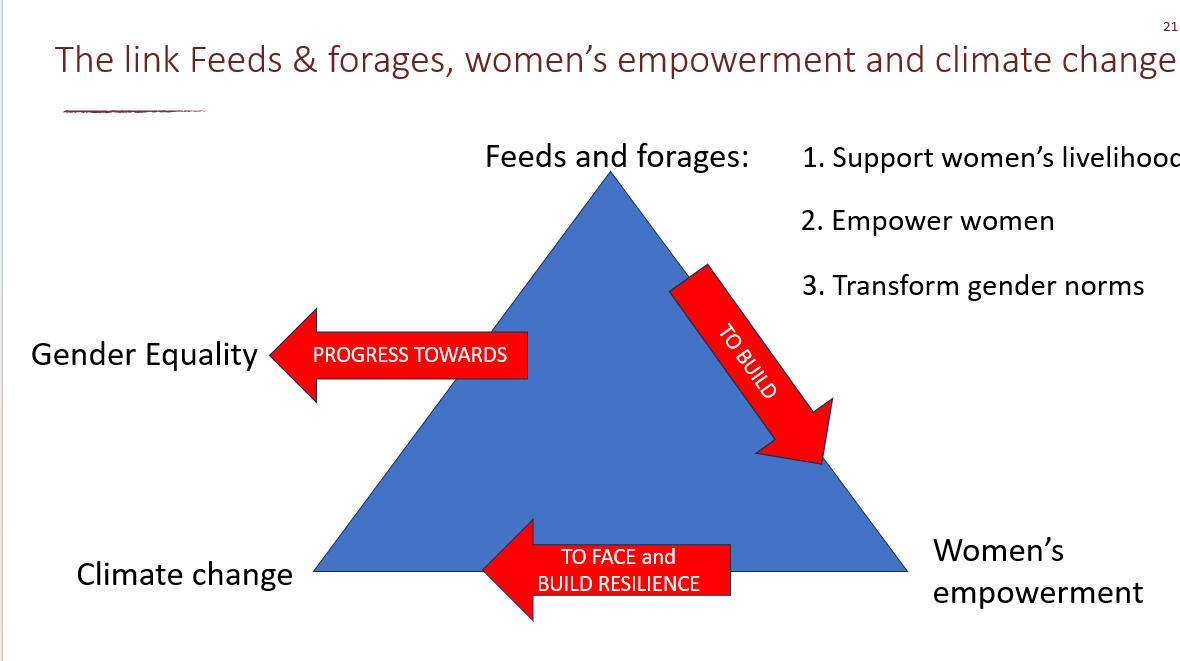
Gender Transformative Approaches for Sustainable Livestock Development: An AIM4Climate COP28 Roadshow Event – 6 Dec
Core message
Event Summary
On December 6th, experts from Land O'Lakes Venture37, Corteva Agriscience, and the International Livestock Research Institute (ILRI) discussed efforts to scale the Nourishing Prosperity Alliance's work to support women in managing their livestock to improve productivity while adapting to climate change and reducing methane emissions intensity. In Kenya and Ethiopia, this private sector initiative is reducing net dairy emissions by establishing a market for nutrient-dense, climate-adapted forages.
The webinar featured a keynote address by Caitlin Corner-Dolloff, Senior Advisor for Climate Change, Bureau for Resilience and Food Security, USAID. According to Corner-Dolloff, ‘Globally, 36% of women are employed in agri-food systems, and this jumps to 66% in sub-Saharan Africa.’ Gender is a critical factor that must be addressed when working to increase investment in climate-smart agriculture, while also working towards these systems reducing their emissions. Alessandra Galiè, Gender Team Leader at the International Livestock Research Institute defined gender equality as ‘individuals can achieve life outcomes of the same value, regardless of their gender.’

Diagram showing how feeds and forages, women’s empowerment, and climate change are connected and can progress towards gender equality. Photo: ILRI/Alessandra Galie.
Key takeaways
-
Women are key to building climate resilience in communities, and to achieving sustainable livestock development, based on their significant role in agri-food systems, as globally 36% of women are employed in agri-food systems, and this jumps to 66% in sub-Saharan Africa.
-
Gender empowerment cannot focus on women alone. To achieve success, all members of the community - especially men - must be included in initiatives.
-
Adapting and improving feeds and fodder is an effective way to reduce methane emissions from livestock, increase animal efficiency, and improve women’s empowerment by increasing their earnings
-
Despite the livestock sector having a high potential to reduce emissions, there is still a gap in access to funding for small holder farmers.
What panelists had to say
-
‘When we hold women back, we hold everyone back’ and ‘Globally, 36% of women are employed in agri-food systems, and this jumps to 66% in sub-Saharan Africa’ (Caitlin Corner-Dolloff, Senior Advisor for Climate Change, Bureau for Resilience and Food Security, USAID)
-
‘The dairy sector is a high-potential driver of agricultural economic transformation and an opportunity to reduce emissions intensity in East Africa’ (Sosena Mulatu, Gender, Youth, and Social Inclusion Specialist, NPA-FORAGE program; Land O’Lakes Venture37)
-
‘Women are key to building climate resilience in communities’ and ‘Poor rural women are most like to be affected by climatic changes’ (Alessandra Galiè, Gender Team Leader; International Livestock Research Institute)
Looking forward
Betty Kiplagat, Government and Industry Affairs Leader, Africa and Middle East at Corteva Agriscience called for increased partnerships with other organisations to support women’s empowerment and small-holder farmers from more angles, such as finance.
Session recording link
https://www.landolakesventure37.org/insights-hub/gender-transformative-approaches-for-sustainable-livestock-development-an-aim4c-cop28-roadshow-event?UTM_Medium=Social&UTM_Source=LINKEDIN&UTM_Campaign=5013788&UTM_Content=11998833863&CDJ=A